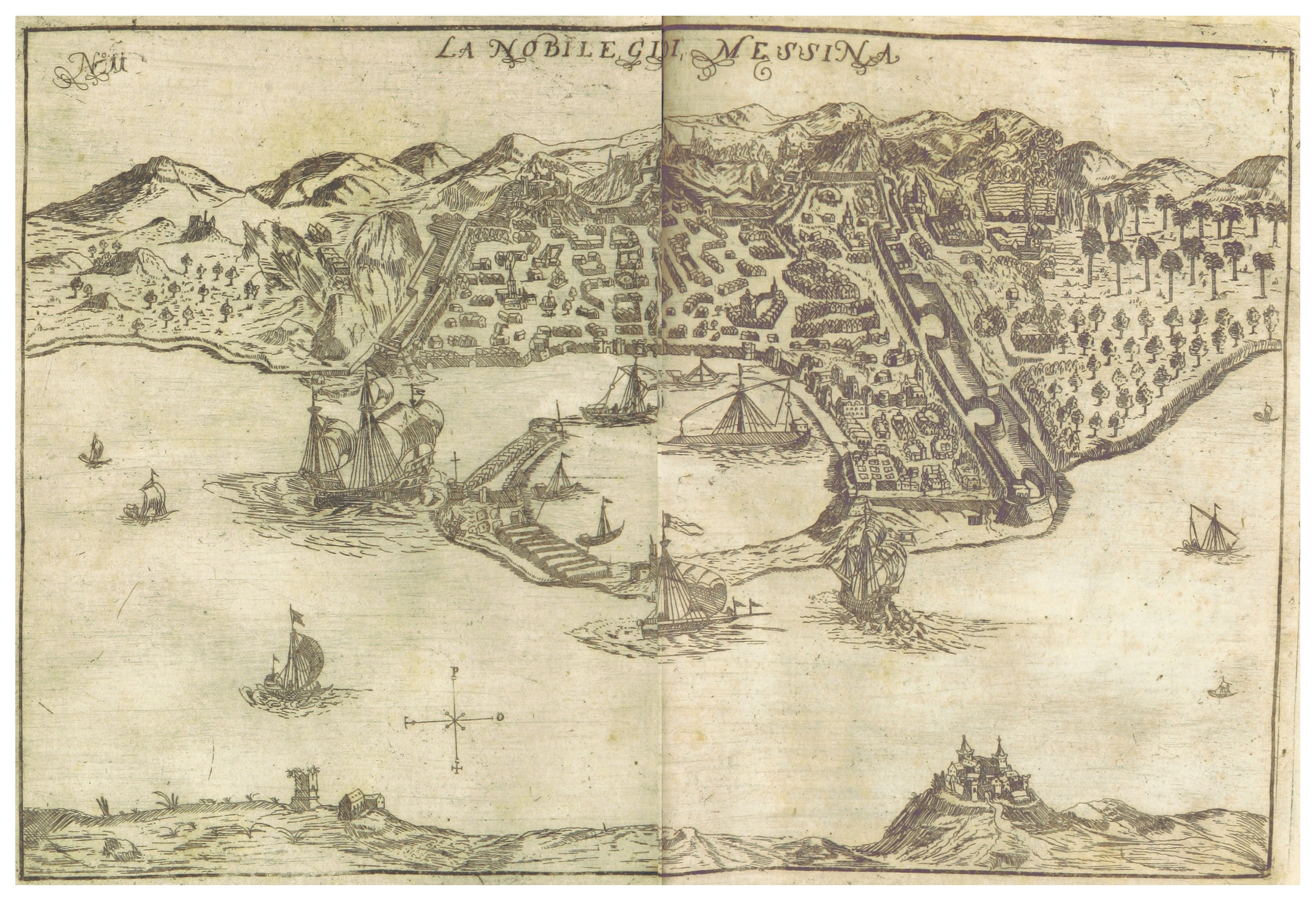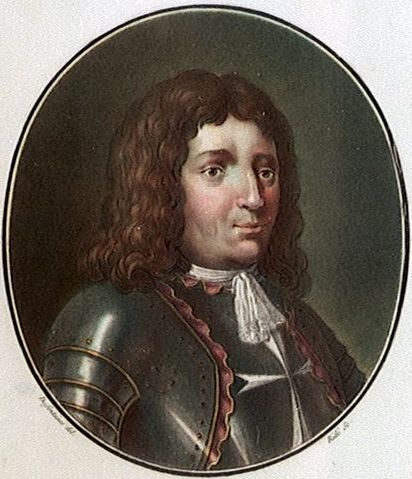Messina revolt on:
[Wikipedia]
[Google]
[Amazon]
 The Messina revolt of 1672–78 began with a revolt against the patrician government of
The Messina revolt of 1672–78 began with a revolt against the patrician government of
 On 1 January 1675 Valbelle's squadron returned, bringing a small corps of land forces under Lieutenant-General Valavoire( fr).
The French minister of foreign affairs, the Marquis de Pomponne, had instructed Vallavoire to encourage the people of Messina to form an independent republic, unless they wanted to become part of France or to accept as ruler a prince designated by
On 1 January 1675 Valbelle's squadron returned, bringing a small corps of land forces under Lieutenant-General Valavoire( fr).
The French minister of foreign affairs, the Marquis de Pomponne, had instructed Vallavoire to encourage the people of Messina to form an independent republic, unless they wanted to become part of France or to accept as ruler a prince designated by
 The Messina revolt of 1672–78 began with a revolt against the patrician government of
The Messina revolt of 1672–78 began with a revolt against the patrician government of Messina
Messina (, also , ) is a harbour city and the capital of the Italian Metropolitan City of Messina. It is the third largest city on the island of Sicily, and the 13th largest city in Italy, with a population of more than 219,000 inhabitants in ...
on the island of Sicily by skilled workers in 1672.
When the patricians regained control in 1674 they turned the movement into a revolt against Spanish rule.
They obtained support from the French, and Messina was independent until the end of the Franco-Dutch War
The Franco-Dutch War, also known as the Dutch War (french: Guerre de Hollande; nl, Hollandse Oorlog), was fought between France and the Dutch Republic, supported by its allies the Holy Roman Empire, Spain, Brandenburg-Prussia and Denmark-Nor ...
of 1672–78, when the Spanish regained control.
Initial revolt
The city of Messina had a population of 120,000 in the mid-17th century, with the city council dominated by a few patrician families. The Spanish government granted Messina a monopoly on the export of silk in 1663, but after loud protests from other ports of Sicily withdrew it the next year. There were no immediate disturbances, but the nobility and upper bourgeoisie of the city became hostile to the Spanish. The Spanish captain-general Luis de Hojo conceived the plan of turning the common people against the upper classes through a display of charity and devotion, and through engineering an artificial shortage for which the senate of the city would be blamed. The artisan workers threw out the patricians in 1672, but did not dispute Spanish rule. ThePrince de Ligne
Prince of Ligne is a title of Belgian nobility that belongs to the House of Ligne, which goes back to the eleventh century. It owes its name to the village in which it originated, between Ath and Tournai. The lords of Ligne belonged to the en ...
, Viceroy of Sicily, was alarmed by the disturbances, and had Hojo removed.
When the disturbances continued and there was talk of using force against the rebels, Ligne also resigned.
Revolt against Spain
On 7 July 1674 the trades companies united with the patricians in a revolt against the Spanish, and besieged Captain-General Crispano in his palace. They drove out the Spanish garrison and gained control of almost all of the city. Four of the five forts were taken. Messina sent deputies to the French ambassador in Rome and to AdmiralLouis Victor de Rochechouart de Mortemart
Louis Victor de Rochechouart de Mortemart, Duke of Mortemart (25 August 1636 – 15 September 1688) was a French nobleman and member of the ancient House of Rochechouart. His father Gabriel de Rochechouart de Mortemart was a childhood friend of ...
, Compte de Vivonne, on the coast of Catalonia.
On 27 September 1674 Vivonne sent Jean-Baptiste de Valbelle to help the rebels with a convoy of supply vessels guarded by a squadron of seven warships and three fire ships.
Valbelle took advantage of the tide and a stern wind to speed through the channel, past the galleys and into the city, bringing enough provisions for about five weeks.
Valbelle helped the Messinese expel the Spanish from the last fort, the Faro at the harbour entrance.
Lacking sufficient provisions and land forces to act against the Spanish, he left to ask for more effective assistance.
 On 1 January 1675 Valbelle's squadron returned, bringing a small corps of land forces under Lieutenant-General Valavoire( fr).
The French minister of foreign affairs, the Marquis de Pomponne, had instructed Vallavoire to encourage the people of Messina to form an independent republic, unless they wanted to become part of France or to accept as ruler a prince designated by
On 1 January 1675 Valbelle's squadron returned, bringing a small corps of land forces under Lieutenant-General Valavoire( fr).
The French minister of foreign affairs, the Marquis de Pomponne, had instructed Vallavoire to encourage the people of Messina to form an independent republic, unless they wanted to become part of France or to accept as ruler a prince designated by Louis XIV
, house = Bourbon
, father = Louis XIII
, mother = Anne of Austria
, birth_date =
, birth_place = Château de Saint-Germain-en-Laye, Saint-Germain-en-Laye, France
, death_date =
, death_place = Palace of Vers ...
.
When they arrived on 2 January 1675 the Spanish army was camped outside the city, had retaken some of the forts and seemed to be about to take the city.
The Spanish had a fleet of 22 ships and 19 galleys cruising at the entrance to the Strait of Messina
The Strait of Messina ( it, Stretto di Messina, Sicilian: Strittu di Missina) is a narrow strait between the eastern tip of Sicily (Punta del Faro) and the western tip of Calabria ( Punta Pezzo) in Southern Italy. It connects the Tyrrhenian Se ...
.
Valbelle, with six warships and three fire ships, boldly attempted the passage and entered the port unharmed on 8 January.
Although the Spanish troops withdrew some distance from the city, Valavoire did no have the resources to advance inland, and provisions soon ran low again.
Vivonne sent another squadron under Capitaine de Tourville.
He joined Valbelle, but together they were still not strong enough to attack the Spanish Admiral Melchor de la Cueva's force of 15 sailing warships and 15 galleys.
Vivonne himself arrived on 11 February 1675 with eight warships and three fireships.
The French fleet now had 20 sailing warships, of which nine were ships of the line.
The French easily defeated the Spanish in the Battle of the Lipari Islands
Lipari (; scn, Lìpari) is the largest of the Aeolian Islands in the Tyrrhenian Sea off the northern coast of Sicily, southern Italy; it is also the name of the island's main town and ''comune'', which is administratively part of the Metropolit ...
, and captured the 44-gun frigate ''Nuestra Señora del Pueblo''.
Vivonne was now able to sail into Messina, delivering large quantities of food.
In the remainder of 1675 the French increased their strength in Sicily and along the southern coast of Italy. In 1676, Michiel de Ruyter
Michiel Adriaenszoon de Ruyter (; 24 March 1607 – 29 April 1676) was a Dutch admiral. Widely celebrated and regarded as one of the most skilled admirals in history, De Ruyter is arguably most famous for his achievements with the Dutch N ...
in command of a combined Dutch fleet, with one Spanish warship attached, which was intended to blockade Messina fought a French fleet, under Abraham Duquesne
Abraham Duquesne, marquis du Bouchet (2 February 1688) was a French naval officer, who also saw service as an admiral in the Swedish navy. He was born in Dieppe, a seaport, in 1610, and was a Huguenot. He was the son of a naval officer and there ...
, at the indecisive battle of Stromboli in January 1676 and, under a Spanish admiral in command of a Dutch-Spanish fleet, commanded the leading squadron at the Battle of Augusta
The Battle of Augusta, also known as the Battle of Agosta and the Battle of Etna, took place on 22 April 1676 during the Franco-Dutch War and was fought between a French fleet of 29 men-of-war, five frigates and eight fireships under Abraham Du ...
in April that. At Augusta, de Ruyter was fatally wounded; the combined fleet suffered more casualties than the French, and was forced to withdraw from Messina. However, despite frustrating Dutch–Spanish fleet's blockade, the bulk of the French fleet was recalled to France later in the year, and the French evacuated their troops from Messina early in 1678.
Return to Spain
On 10 January 1678 England and the United Provinces signed an treaty of alliance at the Hague. Louis XIV saw that he could not compete at sea with the combined Anglo-Dutch forces and decided to withdraw from Sicily, which he had never seen as more than a distraction. He sentFrançois d'Aubusson de La Feuillade
François d'Aubusson de La Feuillade, known as 6th duc de Roannais (1631–1691) was a French military officer and noble who served in the wars of Louis XIV and became a Marshal of France. He was also responsible for initiating the design and co ...
from Toulon with Duquesne's fleet, ostensibly to replace Vivonne as viceroy in Sicily but in fact to evacuate the French troops.
La Feuillade had himself proclaimed viceroy with great pomp on 28 February 1678.
On 13 March 1678 he embarked the French troops on the pretence of an expedition against Palermo.
He then informed the Messinese ''jurats'' that the French were leaving for good.
A few hundred leading families were allowed to embark before the fleet left.
The Spanish viceroy returned to Messina without opposition, having promised a general amnesty, a promise that was not kept.
References
Sources
* * * * {{authority control 1672 in the Kingdom of Sicily Conflicts in 1672 17th-century rebellions Sicilian rebellions